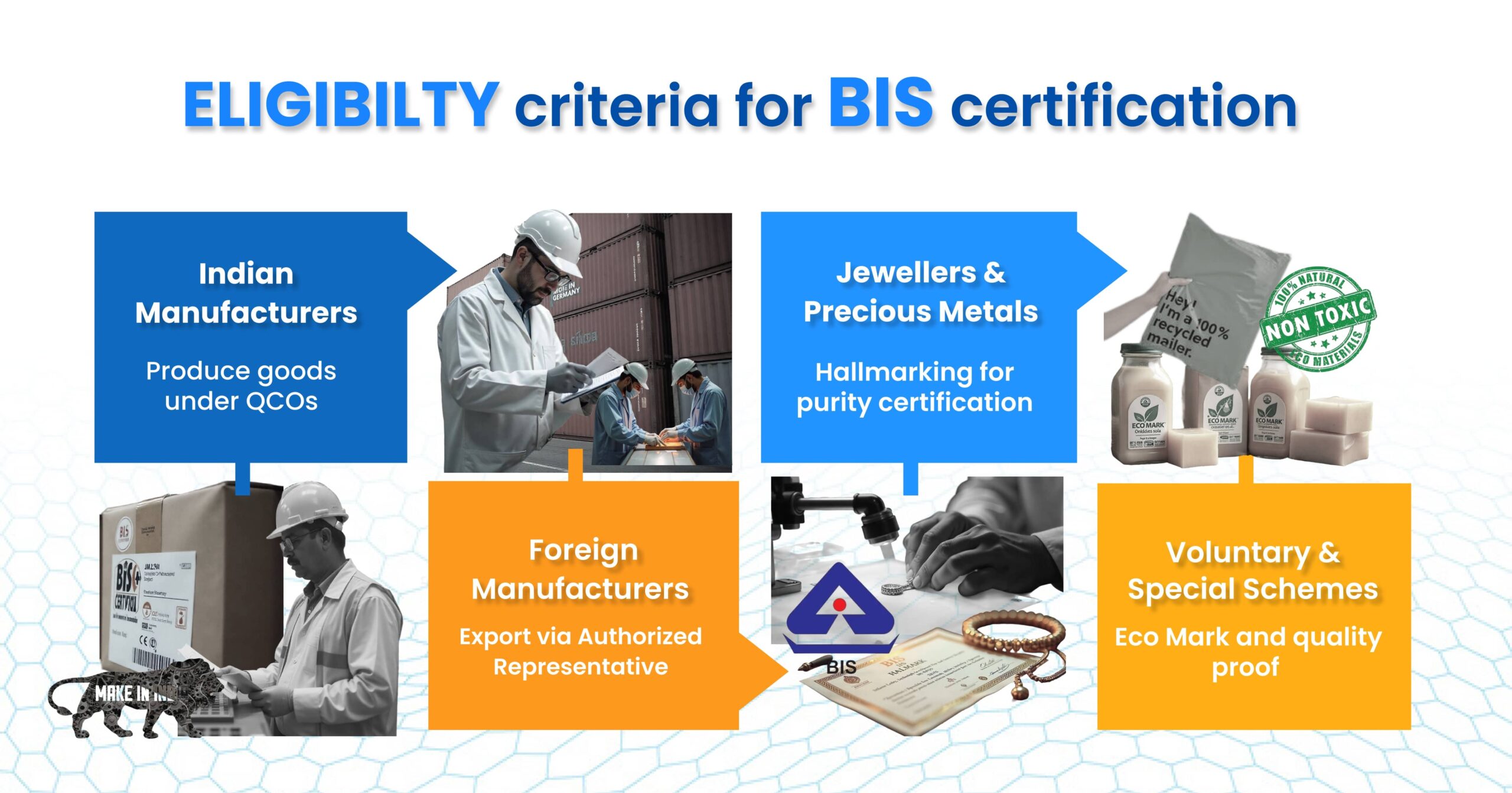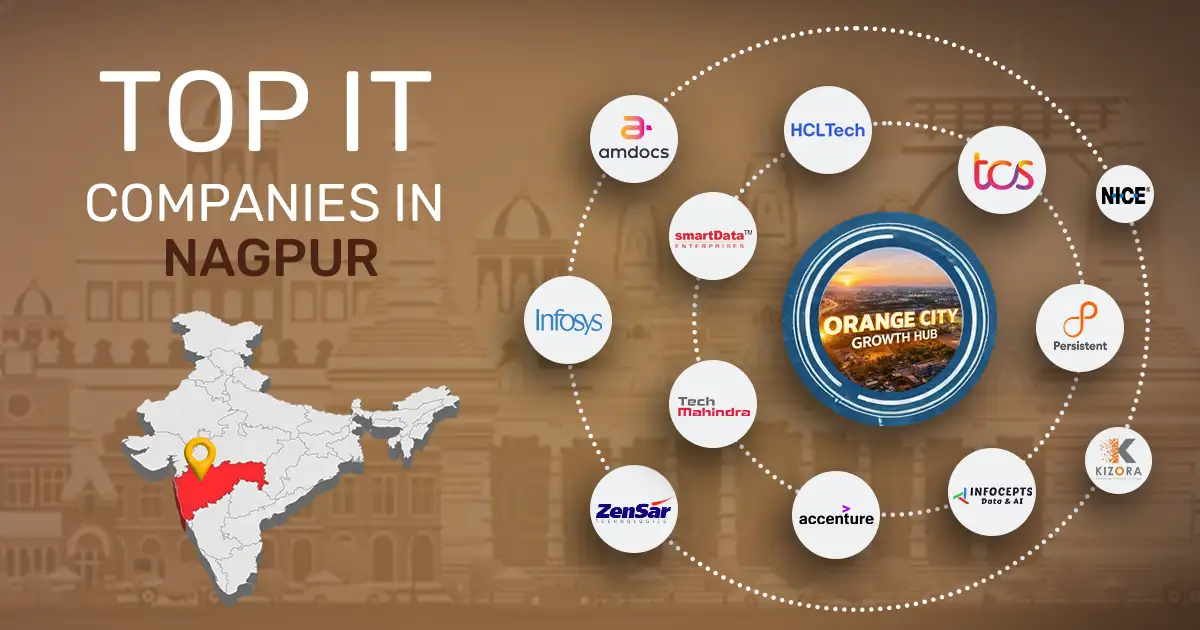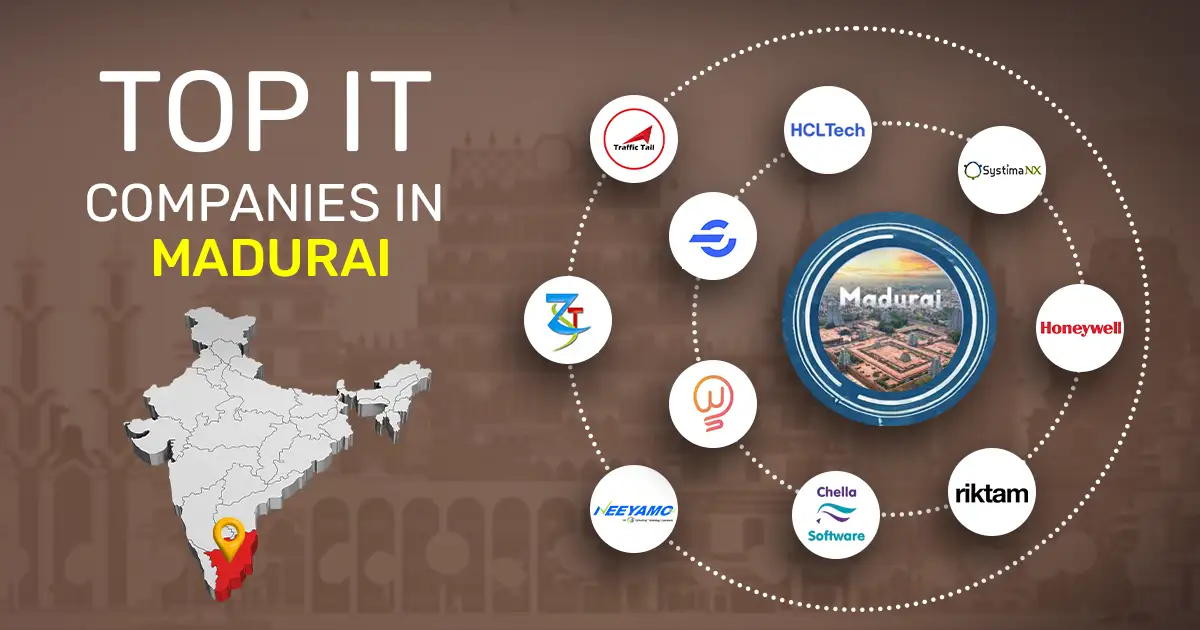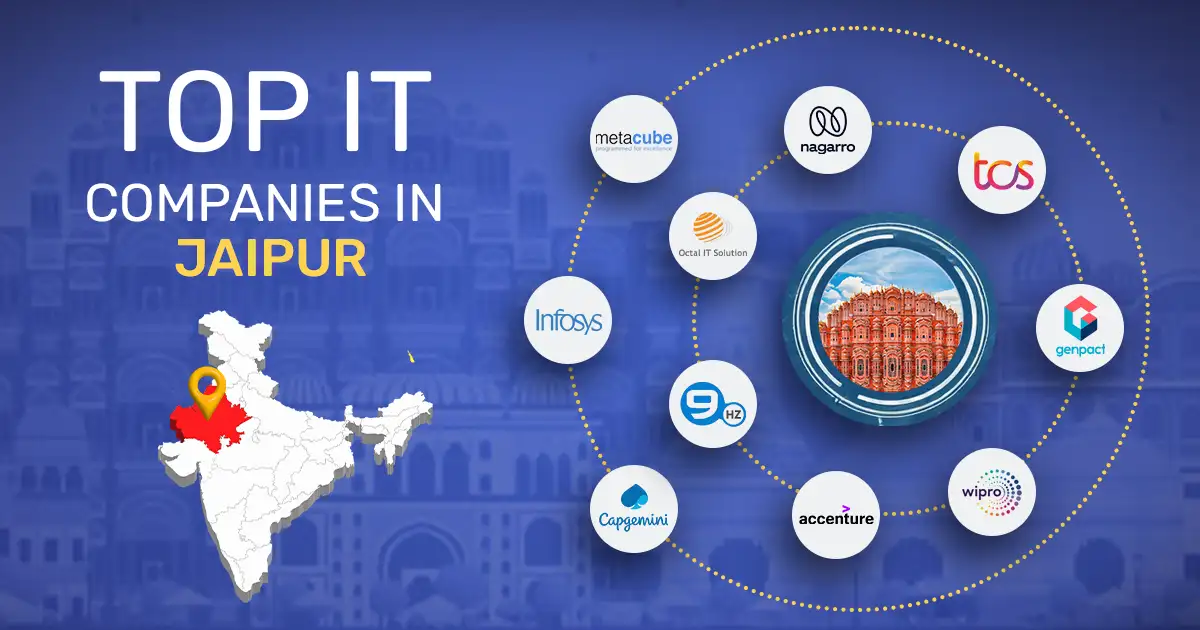India's fast-growing consumer market and strict quality rules make BIS certification more important than ever for businesses today. With products requiring mandatory BIS certification, compliance can be challenging for manufacturers, importers, and exporters. The process of receiving BIS certification often involves complex documentation, rigorous product testing, and meticulous factory inspections.
With increasing regulatory oversight and consumer awareness, BIS certification has become a symbol of credibility and compliance. It not only prevents substandard products from entering the market but also enhances your brand's credibility, opening doors to retail, e-commerce, and government tender opportunities across the country.
What is BIS Certification?
The full form of BIS certification is the Bureau of Indian Standards certification, which is issued by India’s national standards body to ensure the quality, safety, and reliability of products. Also known as BIS Registration, it serves as a third-party assurance that a product meets the required Indian standards. It is the national standards body of India, established under the BIS Act 2016, working under the Ministry of Consumer Affairs, Food & Public Distribution.
This BIS certification ensures that products adhere to specific Indian Standards (IS), providing confidence to consumers and streamlining trade. Manufacturers use the BIS certificate mark (like the ISI mark or R-number) on their products to signify compliance.
Products That Come Under BIS Certification
A wide range of products comes under BIS certification, categorized primarily by Quality Control Orders (QCOs) issued by various ministries. These QCOs make BIS certification mandatory for specific products to ensure public safety, health, and environmental protection.
As of March 2025, over 679 products have been brought under mandatory BIS certification in India, covering categories like electronics, automotive components, and construction materials. This number continues to grow as the government expands its focus on consumer safety and product quality.
Manufacturers, importers, and exporters dealing with these items must obtain BIS certification before selling in the Indian market. Staying compliant not only avoids legal issues but also enhances trust and market access.
For instance:
- Electronics
- Household appliances
- Cement
- Steel
- Automotive components
- Food products.
It is crucial for manufacturers and importers to regularly check the updated list of products under mandatory BIS certification to ensure compliance and avoid legal repercussions.
Types of BIS Registration Schemes
The Bureau of Indian Standards operates various schemes for BIS registration, catering to different product types and manufacturing locations. Understanding these schemes is vital for knowing how to apply for your BIS certificate.
BIS Registration Schemes for Manufacturers
The following are the schemes necessary for registration of BIS for manufacturers:
- Product Certification Scheme (ISI Mark)
-
- Applicable to domestic manufacturers for products like cement, steel, electrical appliances, packaged water, etc.
- Over 150+ product categories have been made mandatory under this scheme.
- After factory audits and product testing in BIS-approved labs, the ISI mark is granted.
- Valid for 1 or 2 years, renewable after compliance verification.
- Compulsory Registration Scheme (CRS)
-
- Covers 60+ categories of electronic and IT products, such as mobile phones, LEDs, TVs, and batteries.
- Manufacturers (Indian or foreign) must register with BIS before selling or importing.
- Products must be tested in a BIS-recognized lab and comply with specific Indian Standards (IS).
- No factory inspection required, making it faster than the ISI route.
- Management System Certification
-
- Focuses on compliance with BIS-adopted ISO standards (e.g., ISO 9001, ISO 14001, etc.).
- Ensures quality management, environmental safety, and occupational health practices are followed.
- Helps manufacturers enhance internal efficiency and global acceptance.
BIS Registration Schemes for Importers
Below are the schemes specific to importers:
- Foreign Manufacturers Certification Scheme (FMCS)
-
- Designed for foreign manufacturers selling ISI mark-mandated products in India.
- Involves factory inspection by BIS officials, sample testing, and regular surveillance.
- Required for items like kitchen appliances, pressure cookers, industrial valves, etc.
- Importers must ensure that overseas suppliers are FMCS certified before shipping.
- Compulsory Registration Scheme (CRS)
-
- While manufacturers apply directly, importers are responsible for verifying that the products they bring in are registered under CRS.
- If products are unregistered, customs will block the shipment, and penalties may apply.
- Special Schemes (Product-Specific Certification)
-
- Some products may fall under sector-specific BIS regulations, such as food packaging, solar panels, and batteries.
- Importers must stay updated on product notifications from BIS and the concerned ministries.
BIS Registration Schemes for Exporters
These schemes are crucial for exporters:
- BIS Certification (For Indian Exporters Selling Domestically as Well)
-
- If a product is sold both in India and abroad, BIS certification is mandatory for the Indian market.
- Exporters can benefit from certification as it enhances credibility, simplifies government tenders, and allows e-commerce platform onboarding.
- Export to Countries with Their Own Regulatory Standards
-
- While BIS is not required for foreign markets, exporters often need certifications like CE (Europe), UL (USA), or CCC (China), depending on the destination.
- BIS can be a useful benchmark in documentation and audits for other global markets.
Key Differences:
| Criteria | Manufacturers | Importers | Exporters |
| Primary Role | Produce and certify products | Ensure imported goods comply with BIS | Comply with local sales, prepare for global |
| Relevant Schemes | ISI, CRS, Management System | FMCS, CRS, Special Schemes | BIS (if selling in India), global schemes |
| BIS Application | Directly applicable | Indirect, must check supplier compliance | Applicable only if the domestic sale is involved |
| Compliance Focus | Factory audits, lab tests | Product documentation, BIS checks | Market access, credibility, and global standards |
Governing Laws Behind BIS Certification in India
The framework for BIS certification in India is robust and continually evolving, primarily designed to safeguard public health, ensure product quality, and promote fair trade. The framework isn't governed by a single law. Instead, it's a combination of acts, regulations, and orders that empower the Bureau of Indian Standards (BIS) to fulfill its mandate.
Here are the governing laws and frameworks for BIS certification in pointers, with additional information:
- The Bureau of Indian Standards Act, 2016:
This is the foundational legislation that establishes the Bureau of Indian Standards (BIS) as the National Standards Body of India. The BIS Act, 2016, was notified on 22 March 2016 and came into effect on 12 October 2017, replacing the older BIS Act of 1986. This adaptation strengthened standardization, product certification, and consumer protection.
The Act empowers BIS to formulate Indian Standards, provide product and system certification, and enforce mandatory compliance for goods and services. It operates under the administrative control of the Ministry of Consumer Affairs, Food and Public Distribution.
It also includes provisions for compulsory use of a Standard Mark (like the ISI mark or R-number) on certain products in the public interest, for consumer protection, or environmental safety. This Act also enables the government to introduce simplified conformity assessment schemes and mandates penalties for non-compliance.
- BIS (Conformity Assessment) Regulations, 2018:
These regulations are crucial as they detail the specific procedures and schemes under which BIS certification (or conformity assessment) is granted. They outline the application process, product testing requirements, factory inspection norms (where applicable), and the criteria for issuing licenses or Certificates of Conformity (CoCs).
The regulations define various schemes like Scheme I (ISI Mark), Scheme II (Compulsory Registration Scheme or CRS), and, more recently, Scheme X for machinery and high-risk equipment. They ensure a standardized and transparent approach to how BIS registration is achieved and maintained, providing the procedural backbone for the BIS certification process.
- Quality Control Orders (QCOs) issued by Various Ministries:
These are specific notifications issued by different ministries of the Government of India that make BIS certification mandatory for certain products. QCOs are critical because they define which products require a certificate to be manufactured, sold, or imported, with Section 16 of the BIS Act, 2016, empowering ministries to issue such QCOs.
For instance, the Ministry of Electronics and Information Technology (MeitY) issues QCOs for electronic goods under CRS, while other ministries issue them for cement, steel, toys, etc. These orders are regularly updated, requiring businesses to stay vigilant about products that fall under mandatory BIS registration.
- Specific Scheme Regulations (e.g., Hallmarking Regulations):
Beyond the general Conformity Assessment Regulations, BIS also issues specific regulations for particular schemes. For example, the BIS (Hallmarking) Regulations, 2018, govern the mandatory hallmarking of gold and silver jewellery, ensuring the purity of precious metals. These detailed regulations provide specific rules and procedures unique to each specialized BIS certification scheme, ensuring precise adherence to the standards.
Notably, gold hallmarking was made mandatory from 16 June 2021 to guarantee the purity and quality of gold jewelry sold in India.
- Foreign Trade (Development and Regulation) Act, 1992 (FTDR Act):
While not directly a BIS law, the FTDR Act, along with its associated rules and policies (like the Import Policy), plays a significant role in enforcing BIS certification for imported products. Customs authorities often refer to notifications under this Act to verify if imported goods comply with Indian Standards. This legal linkage ensures that foreign-manufactured goods adhere to Indian quality benchmarks, preventing the entry of substandard products into the market.












